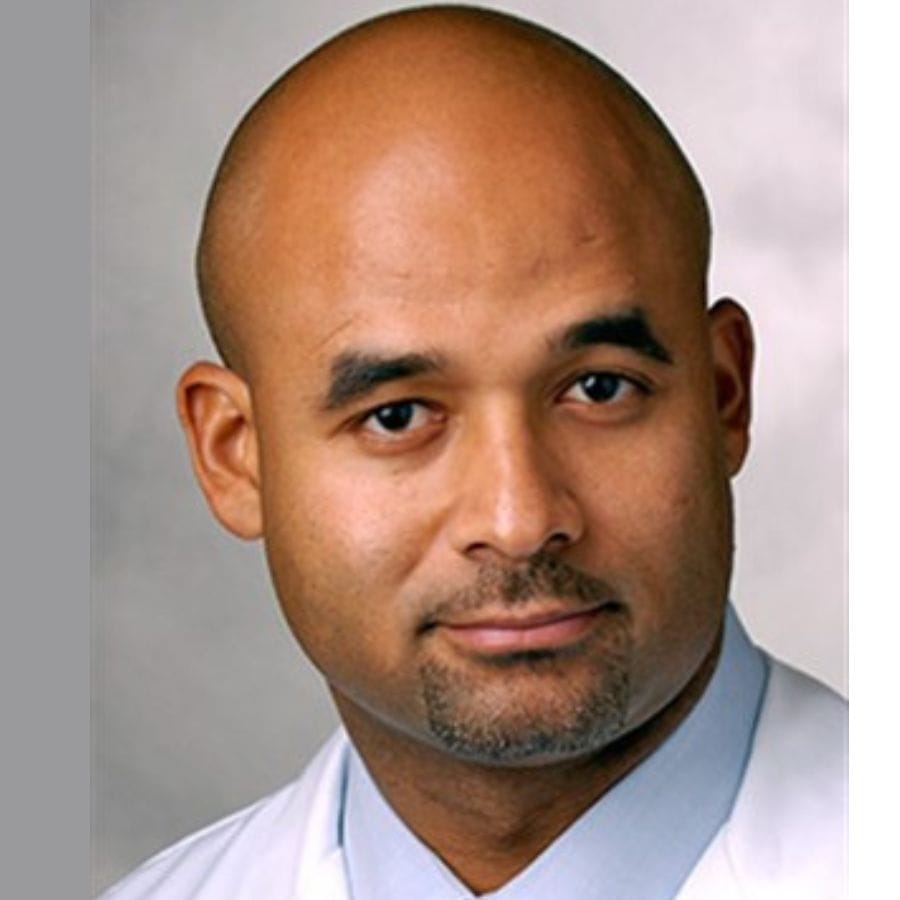Dr. Gregory L. Primus, owner of the Chicago Center for Sports and CSO Sports Medicine & Orthopedic Surgery (CSO), and Dr. Harel Deutsch, co-director of the Rush Spine Center in Chicago, are frustrated with the rise in denials from Medicare Advantage that denies seniors the right to proper health care but creates profits for managed care providers.
Reached in Washington, D.C., Representative Danny K. Davis (D-7th) warned patients to “check their Medicare Advantage plans very carefully and get some assistance as they are making decisions about it, especially during this re-enrollment period,” which ends Thursday, December 7.

In an interview with the Chicago Crusader, Primus, who remains in a battle to keep open his Hyde Park/Kenwood sports and Urgent Care facility that is facing eviction because the landlord won’t repair a leaky roof, said doctors are in a constant battle with Medicare Advantage denials in surgical or other medical procedures.
“This again is in line with the planned effort to ‘manage costs’ as they understand that attrition will play a huge part in this, as many patients simply give up and don’t get the care their doctors recommend,” warned Primus.
“Doctors give up and even opt out of these plans, and at the end of the day the patients suffer, and doctors remain the most unhappy workers of all professions,” Primus said.
Primus isn’t alone in complaining about Medicare Advantage. In an interview with Becker’s Orthopedic Spine Review, a leading resource in news and analysis on business and legal issues relating to orthopedic and spine practices, Dr. Harel Deutsch, co-director of the Rush Spine Center in Chicago, is equally frustrated with how prohibitive Medicare Advantage has become for a long time.
“It’s gotten much, much worse (than it was a year ago),” said Deutsch. “It was bad back then, but now it’s five times worse,” he said during a panel at the Becker’s 29th annual meeting last October.
“Every time I turn on the TV, I see ads for Medicare Advantage and basically Medicare Advantage, they’ll disapprove any surgery you apply for,” Deutsch said. “A lot of times, I have to tell patients, ‘Look, you have to wait until you can un-enroll and then do that. Then you can have your surgery.”
Deutsch gave an example when his team wanted to perform a cervical fusion with an interbody implant. He was referring to a spacer that is implanted between two adjoining vertebrae in a spinal fusion procedure, which replaces a damaged spinal disc and provides an ideal environment for two vertebrae to fuse together.
He said Medicare Advantage denied the interbody device. “They’ll deny surgeries for the craziest reasons,” a frustrated Deutsch said. “The only thing we can do is to try to educate patients not to enroll in it.”
Deutsch sees regular Medicare plans approving surgeries more quickly and easily than the Medicare Advantage plans, which require surgeons to take extra steps for approval. He said physicians and surgeons are also seeing Medicare Advantage deny spine and pain procedures that traditional Medicare approves.
“Medicare doesn’t require a lot of jumping through hoops, but the Medicare Advantage programs will,” said Deutsch. “Basically,” he added, “they’re not even real insurance plans, just deny the medical treatment and hope that you will tire out and eventually not have it.”
Dr. Primus’ specialists, who require approvals in order to take care of their patients, are constantly battling with Medicare Advantage even though the specialists have the expertise to treat their patients. “It can become demoralizing to have to constantly ask permission to do what you have spent years and years training on,” said Primus.
“There is no one better qualified to make that recommendation. and there is no one better positioned that truly has the patient’s best interests at heart,” Primus said.
“If you understand how insurances work, this is not surprising. We have been fighting this battle for a long time. The problem is that more and more patients are getting signed up under managed care plans such as Medicare Advantage,” Primus stated.
“These are not actually managed care plans but more accurately can be described as ‘managed cost’ plans. All HMOs or managed care (cost) plans function very similarly,” Primus explained.
“They can be thought of as investment vehicles for health care systems, and even more commonly today by equity firms in the financial sector,” he said.
Explaining, Primus said, “You estimate a gross profit based on the number of patients you can collect under your plan, and you estimate the cost of medical services, and whatever is left over is net profit to the stakeholders.
“The less medical care you offer, the higher the profits for the owners of the managed care (cost) plans,” Primus stated. “The administrators of the plan and employed physicians are often incentivized to offer less care to maximize these profits.”
Primus gave an example, that of penalizing primary care physicians (PCPs) who order MRI scans or make too many referrals to specialists. “Any referral for more complicated imaging or to specialists to address specific problems can only lead to increased costs to the plan, never mind just simply doing what’s best for the patients.”
Dr. John Prunskis, co-medical director of the Illinois Pain & Spine Institute based in Barrington, said at the last October meeting, “Maybe you should call them ‘Medicare Disadvantage’ plans.
He is urging physicians to educate their congressional representatives on Medicare Advantage plans and the high volume of denials they are seeing. He said the “Medicare Disadvantage plan is actually profiting off our taxpayer dollars to not provide care to seniors that they’re supposed to.”
-
Chinta Strausberghttps://chicagocrusader.com/author/chinta-strausberg/
-
Chinta Strausberghttps://chicagocrusader.com/author/chinta-strausberg/
-
Chinta Strausberghttps://chicagocrusader.com/author/chinta-strausberg/
-
Chinta Strausberghttps://chicagocrusader.com/author/chinta-strausberg/






